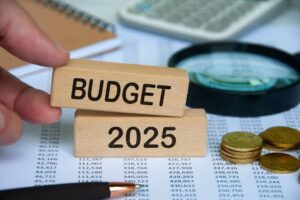
In a significant development, the Federal Government of Nigeria has proposed a budget expenditure of N47.9 trillion for the 2025 fiscal year. This announcement was made by the Minister of Budget and Economic Planning, Atiku Bagudu, after the Federal Executive Council (FEC) meeting presided over by President Bola Tinubu.
The proposed budget is part of the Medium Term Expenditure Framework (MTEF) and Fiscal Strategy Paper for 2025-2027. The framework is designed to strengthen Nigeria’s economic base and deliver positive growth and development for the benefit of all citizens.
The proposed budget is based on several key projections and assumptions, including:
– Crude Oil Benchmark: $75 per barrel
– Oil Production: 2.06 million barrels per day (bpd)
– Exchange Rate: N1,400 per dollar
– GDP Growth Rate: 6.4 percent
These projections and assumptions are critical to the government’s revenue and expenditure plans for the 2025 fiscal year.
The proposed budget has significant implications for Nigeria’s economic development and growth. The government’s commitment to strengthening the economy and delivering positive growth and development is evident in the proposed budget.
However, there are concerns about the government’s ability to meet the oil production benchmark, given the current production levels of about 1.8 million barrels per day. Additionally, the exchange rate and GDP growth rate projections may be subject to fluctuations in the global economy.
The Federal Government’s proposed budget for 2025 is a significant step towards strengthening Nigeria’s economic base and delivering positive growth and development. While there are concerns about the government’s ability to meet certain projections and assumptions, the proposed budget demonstrates the government’s commitment to economic development and growth.
As the government moves forward with the budget proposal, it is essential to ensure that the projections and assumptions are realistic and achievable. Additionally, the government must prioritize transparency and accountability in the budgeting process to ensure that the proposed budget is implemented effectively and efficiently.

